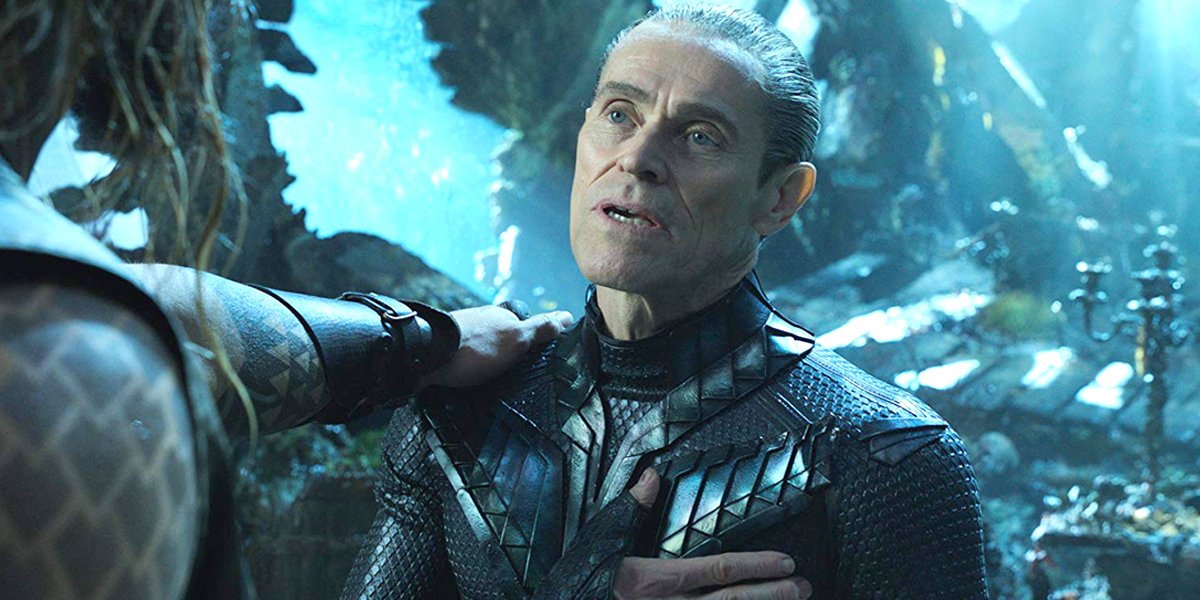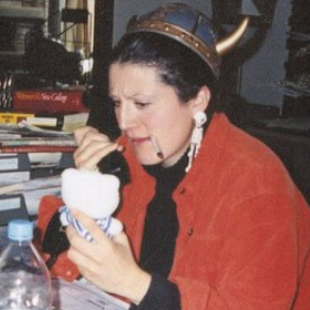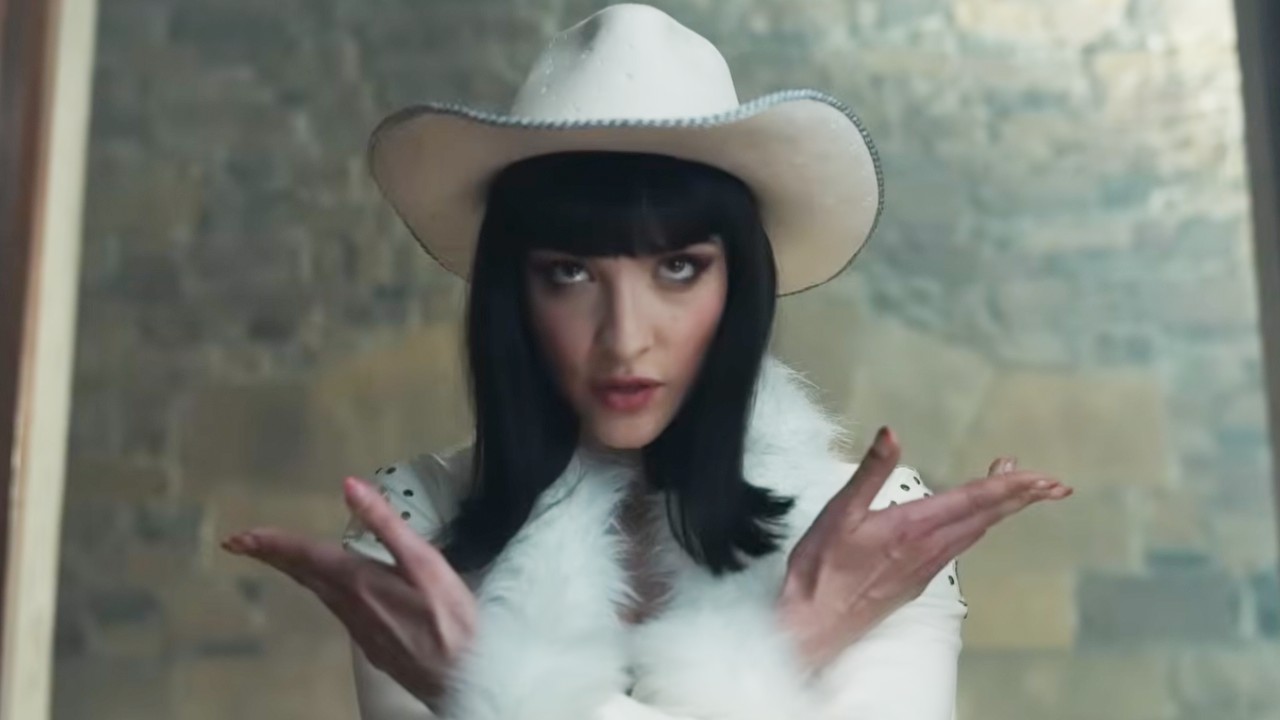Willem Dafoe Finds Superhero Movies Too Long, Noisy, And Overshot: 'The Industry Outgrew Itself'

Your Daily Blend of Entertainment News
You are now subscribed
Your newsletter sign-up was successful
Spider-Man and Aquaman star Willem Dafoe doesn't want to bite the hand that feeds him. He knew when he was asked about Martin Scorsese's comments on Marvel movies -- and the like -- that he was treading on troubled ground. But he's a candid guy with opinions of his own, and he sounds conflicted about the current state of the industry.
Some of what Willem Dafoe said will bug comic book movie fans, but he also said some things that I think most fans will agree with. There's plenty of common ground in this discussion. And as much as I love most superhero films, I think it's good for people in the industry like Dafoe to give it this kind of public tough love.
Willem Dafoe opened up on comic book movies during a talk at 92Y in NYC after a screening of his new film The Lighthouse. A fan helpfully taped part of his panel talk, where he commented on the kinds of superhero movies Martin Scorsese has been talking about. Here, Dafoe references director Sam Raimi's 2002 Spider-Man movie, with Dafoe as Norman Osborn/Green Goblin:
I mean, I’ve done some of those movies, and they’re fun. But also, even then, I got lucky because they’ve been personal. For example, Spider-Man was great fun because Sam Raimi made that like it was a little independent film. And also that was before a lot of the technology was in place, and comic book movies were fairly new, so it was exciting. There was nothing by the numbers, they didn't roll in the experts. Now it's become, the industry outgrew itself.
Spider-Man came out in 2002, which isn't exactly the Dark Ages, but it was certainly before the current explosion of MCU and DCEU movies. Willem Dafoe returned for cameos in Spider-Man 2 in 2004 and Spider-Man 3 in 2007. He's spoken warmly about his Spider-Man role before, and even seemed kinda sorta open to playing the role again in the MCU.
Willem Dafoe was asked how he approaches superhero/villain characters, like Green Goblin in Spider-Man or his very different experience of making Aquaman:
You have fun with some of the things that you get to do, because there’s lots of hardware and there’s lots of crazy crane shots and those kind of things. That’s fun. But stuff is overshot. They spend a lot of money on big set pieces, because that’s what delivers the action, and I find them too long and too noisy. But let’s not get into this [laughs]. I don’t want to bite the hand that feeds me. But, no, seriously, folks. Look, those aren’t the movies I run to.
It's clear he's one of those superhero movie actors who would rather be watching a movie like The Lighthouse. You may wonder why he would sign on for a 2018 movie like Warner Bros.' Aquaman if he felt the industry outgrew itself. He talked more about Aquaman, seeming to sign on for James Wan but also not quite playing the role he expected in the beginning:
I like James Wan. I think he’s a good filmmaker and he was kind of amazing that he could do this big stuff, and he could also talk to the actors. ... I [play] the old master, sort of, I guess. But that's how it's pitched to me, and with these movies the script that you sign on for is never the script that's made.
Yes, that does seem to be the case with a lot of these big-budget movies. For example, the Avengers: Endgame writers have been talking about how many things were changed from the script phase to filming, reshoots, and then in editing. I can definitely see how someone might sign on for a certain role based on the script, or the pitch, and then they end up playing something completely different.
Your Daily Blend of Entertainment News
So Willem Dafoe has conflicted thoughts about superhero movies, but he does seem to think that with our current glut of choices -- including so much on TV and the new streaming wars -- that we'll all end up coming back to the cinema:
Films have changed so much even in the time that I’ve been working, where they sit in the culture, obviously, and how we watch films. And I’m a pretty forward-looking person, but I’m old-fashioned in the fact that nothing beats being in a dark room with a bunch of strangers, watching a light on a screen and having the experience. I think as everybody gets punched out from too much stuff on TV, too many choices, they’re gonna want that. So it may be a more marginalized thing, but I think it’ll always be there.
Finally, here's Willem Dafoe's take on superhero movies needing people to push the boundaries to move forward:
What I worry about is, those big movies, they need something to feed them. They need a surge, and they need people pushing the boundaries so they can go forward. Because they’re not in the business of going forward, really. They’re in the business of business, and you can make beautiful things because they have a lot of resources. They can make fantastic things and they can make things that work all over the world because very few other countries have that kind of muscle to make these spectacular things. And they’ve touched on comic book movies which have kind of a Joseph Campbell thing going, they’re our modern gods. But I don’t have anything, really, intelligent to say about this [laughs].
I think he did have some intelligent things to say about it, and this is a good debate for people to be having There is no one way to make a movie. Just look at Willem Dafoe's own eclectic filmography, from a black-and-white art house film like The Lighthouse and Edward Norton's Motherless Brooklyn to Spider-Man, Aquaman, John Wick, and even XXX: State of the Union although let's not talk about that.
Speaking of The Lighthouse, that movie co-stars the next Batman -- but Robert Pattinson's noir-driven movie sounds like it might be less of a big-budget spectacle like Willem Dafoe is talking/complaining about. Plus, Dafoe thinks Pattinson has the right asset for the job. Meanwhile, Aquaman 2 is set for release in 2022.
Gina grew up in Massachusetts and California in her own version of The Parent Trap. She went to three different middle schools, four high schools, and three universities -- including half a year in Perth, Western Australia. She currently lives in a small town in Maine, the kind Stephen King regularly sets terrible things in, so this may be the last you hear from her.

